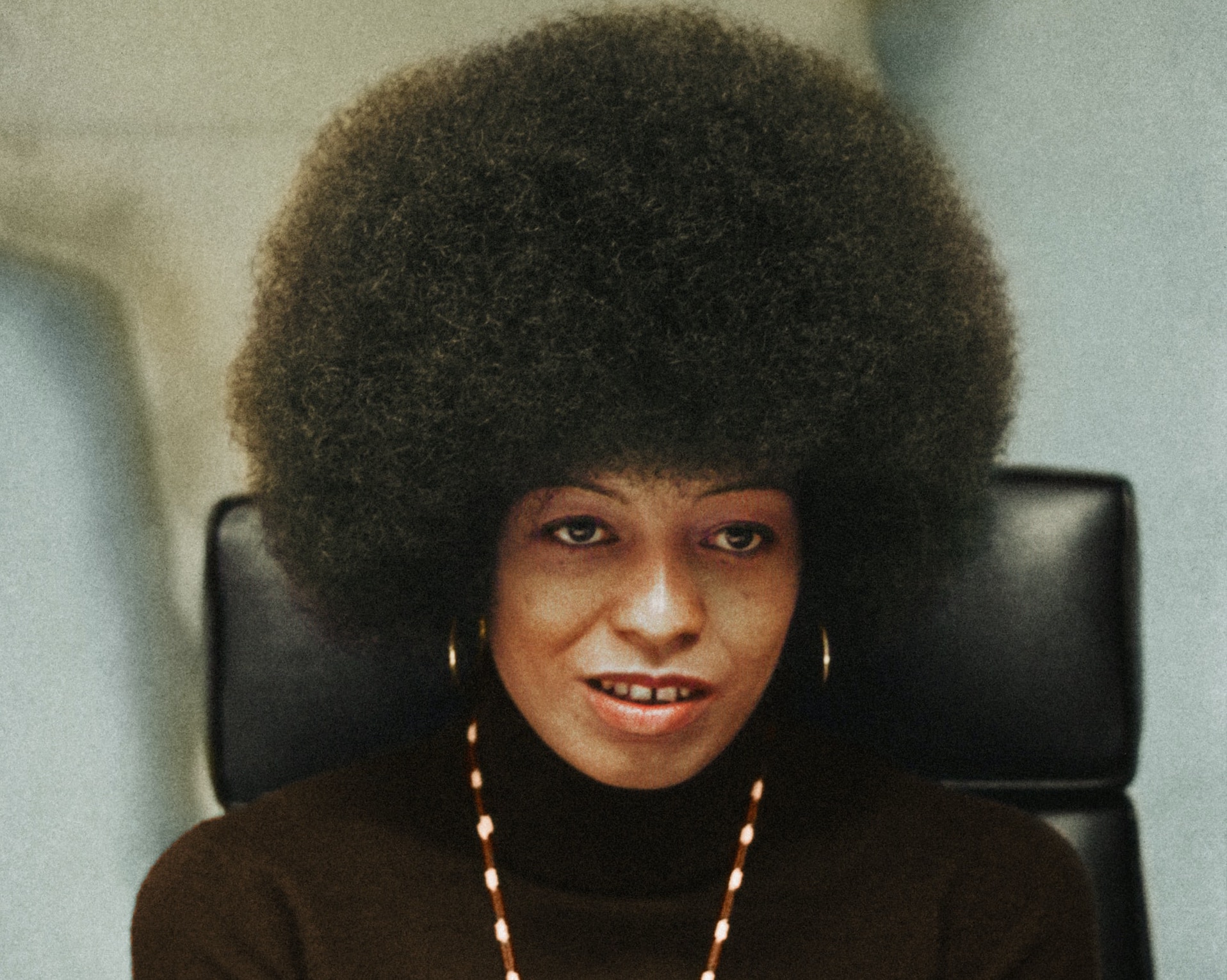In recent years yoga's growing popularity in modern-day society has become a multi-billion dollar industry. The evolution has been widespread, from billboards to commercials and digital campaigns. However, this isn't a new phenomenon. Contrary to public belief, Black women have historically utilized mindfulness as a therapeutic practice to align the physical and mental body connection. For instance, yoga has played a significant role in the lives of Black women such as Queen Latifah, Eartha Kitt, Halle Berry, and Jennifer Lewis.
Not to mention revolutionary activist and cultural icon Angela Davis began practicing Hatha yoga after her 1970 arrest. In a 1975 published article in EBONY Magazine entitled "YOGA: Something for Everyone," Davis spoke with journalist Stanley Williford about how the practice of yoga helped her increase her physical health and develop inner awareness.
"Just the physical part was a help, in my case, because I couldn't leave the cell for regular exercise. I have never used yoga as an end in itself but merely as a means to prepare myself for a more effective struggle. As a result of yoga, I am more energetic. I am able to go and appeal to people and to organize them to do the kinds of things that are vital to our freedom."
When it comes to an act of resistance, self-care is at the very essence of it. With the roots of wellness and liberation strongly linked, bridging yoga and activism has long served as a catalyst for healing. As early as 1965 and at the age of 52, Rosa Parks began including yoga into her daily routine and continued to practice it for nearly three decades. She even taught yoga classes throughout her local community in Detroit.
In the book Our Auntie Rosa: The Family of Rosa Parks Remembers Her Life and Lessons, Parks' nieces and nephews wrote about the historical leader's journey and legacy and discussed how yoga was a family practice, describing the Civil Rights pioneer as an avid yogini. "She'll answer the door wearing yoga pants. The exercises help clear her mind, [and] the stretches keep her body limber. In her space on the floor, she takes sanctuary, be it a studio under the voice of an instructor or in the sunlight of her living room. Inner peace and clarity have always been important to her," said Rosa Parks' niece, Sheila McCauley Keys.
Due to health challenges, Rosa Parks incorporated yoga and mediation into her wellness routine and to combat the unwavering stress that accompanied being a primary target as a champion for change. Today, as we continue our advocacy for social and racial justice, collectively and individually, let's carry forward the lessons from the women before us, embracing solitude in those moments of despair and cultivating safe spaces for spiritual growth, self-healing, and inner peace.
